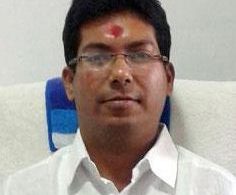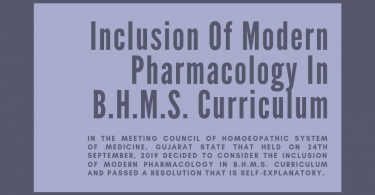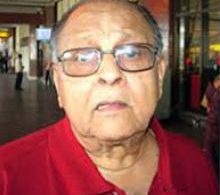B Jain Pharmaceuticals, the New Delhi-based maker of homeopathic ingredients and formulations, says it sees resurgence of homeopathy in India backed by more people willing to try alternative therapies and government’s own efforts to promote traditional medical practices.
The privately held company started out in 1966 as homeopathic book publisher which branched out into manufacturing seven years ago. The company now boasts of exporting homeopathy medicines to 21 countries including highly regulated markets such as US where its pills are available on racks of CVS and Walgreens on partner labels.
But it’s the Indian market that keeps B Jain Pharmaceuticals Chief Executive Officer and promoter Nishant Jain excited as more Indians are taking homeopathic medications for respiratory and allergies diseases.
“People are finding relief in homeopathy as it has no side effects and cost of treatment is low,” Jain said.
“There is big horizon for the homeopathic medicines to be available at different stores across the country,” said Jain in a telephonic interview to Moneycontrol.
“The quantum of growth for the industry will be very huge, as it will allow companies to promote homeopathy drugs aggresively on a larger footprint,” Jain added.
The decision to allow homeopathy medicines in chemist stores was part of the series of measures taken up by the Union government under Prime Minister Narendra Modi to promote alternate and indigenous medical practices.
The Modi government within months of coming to power in 2014 elevated the fledgling Department of Ayurveda, Yoga and Naturopathy, Unani, Siddha and Homoeopathy (AYUSH) under Ministry of Health and Family Welfare to a full fledged ministry called Ministry of AYUSH with objectives to upgrade educational standards, stengthen research and evolve pharmacopoeial standards.
In a major boost to alternate medicine – the Insurance Regulatory Development Authority (IRDA) — has asked insurance companies to provide coverage for AYUSH treatments.
There isn’t any reliable data on the size of homeopathy industry in India, but homepathy is considered the third most popular after modern allopathy and ayurveda.
Industry body ASSOCHAM in 2012 projected the organised homeopathy market to reach Rs 4600 crore by the end of 2017 at a growth rate of around 30 percent, almost triple the annual growth rate of allopathic medicines. There are 398 manufacturing units producing homeopathy drugs.
According to the Lancet, about 10 percent of the population of India, approximately 100 million people, depend on homeopathy for their health care.
As per the data availabe on AYUSH Ministry website there are over 2,46,772 homoeopathy practitioners, 245 hospitals and 6958 government dispensaries. There are 187 homeopath colleges with a capacity to churn out 13,444 homeopaths every year.
The alternative medicine known as homeopathy was born in 1814 as the brainchild of German physician Samuel Hahnemann.
The practice of homeopathy is based on the belief that disease symptoms can be cured by small doses of substances which produce similar symptoms in healthy people.
Homeopaths find a substance from a list of many remedies, and then dilute it a great deal either in tincture, water, or some other substance and have patients ingest it to cure symptoms.
But modern medicine practitioniers call homeopathy as quackery and pseudo-science, and compare its effectiveness to ‘placebo effect’.





